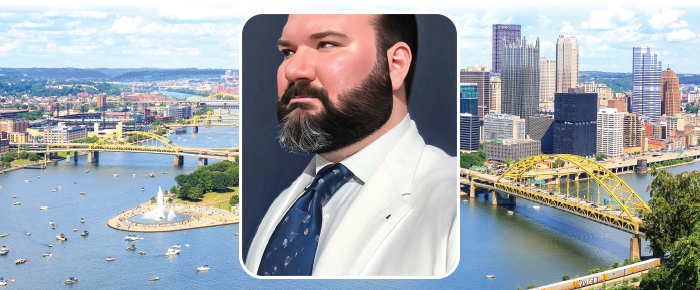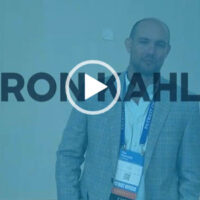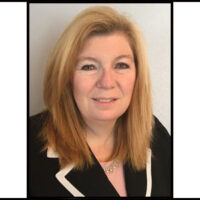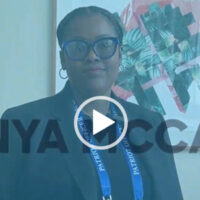
In 2023, the ACAMS Pittsburgh Chapter had a chance to add new anti-financial crime (AFC) experts to their board. This interview provides the opportunity to get to know one of the new board members, Michael Fasanello, who is the crypto compliance officer at AnChain.AI.
ACAMS Pittsburgh Chapter (APC): What was your childhood ambition?
Michael Fasanello (MF): I knew at a very young age that I wanted to work in the administration of justice. Criminal law has always fascinated me, as well as criminology itself. I knew before high school that I wanted to pursue my law degree and either practice criminal law (prosecution for a few years and then defense) or work in federal law enforcement (LE).
APC: Did that change along the way? Do share details of your journey.
MF: In high school, I was more enamored with practicing law. This changed roughly midway through high school when 9/11 happened. After September 11, 2001, my focus was much stronger on LE or military service. I was considering being a Judge Advocate General (JAG) in the military or serving as a federal LE officer.
APC: When and how did you get into financial crime compliance?
MF: I began to catch the bug for AFC and compliance after law school. I graduated from Duquesne University School of Law in 2010, which was a terrible year to be entering what was an oversaturated legal market, and most other industries were shedding employees, still reeling from the 2008 financial crisis. I was working two jobs in Pittsburgh (teaching criminal justice at a local career school and supporting a sole-practitioner family law attorney) when I caught a break and was offered a senior paralegal/law clerk role supporting the U.S. Attorney’s Office for the District of Columbia, in the Asset Forfeiture and Money Laundering Section (AFMLS) of the Criminal Division. This unit was later renamed to the Money Laundering and Asset Recovery Section (MLARS) as it stands to date. This early role paved the way for a decade-long period of service as both a civilian federal contractor in the U.S. Department of Justice and the U.S. Department of the Treasury and as a sworn federal employee for the U.S. Department of the Treasury’s Financial Crimes Enforcement Network (FinCEN).
APC: Do you have any role models/mentors? If yes, please describe how they have shaped the professional you are today.
MF: I don’t look up to what many people often consider role models and mentors: Athletes, celebrities or “influencers.” I have had a few fine educators, bosses, colleagues and friends in my life thus far—but the truth is I look up to my father and son the most. My father taught me the value of hard work, sacrifice, self-respect, ethical and moral conduct and remaining grounded in faith. My wife rounds out my more serious aspects and makes sure I remember to take a breather every now and then and, of course, to eat an actual meal during long workdays. My son has far less time on this earth, but he reminds me daily to be kind and compassionate, to share, to encourage and help others whenever I can, and most importantly, to laugh—he has the most genuine, full-bellied laugh. I’m blessed to have these role models in my life.
APC: What do you think makes an effective anti-money laundering (AML) professional?
MF: Effectiveness in any compliance role—but certainly in AML—begins from the ground up: Starting your career in an organization with strong roots in a culture of compliance. AML professionals who desire to achieve personal success and make even a small difference in countering illicit finance and financial crime would be well-served to find a strong team of talented colleagues who support each other and have a passion for this industry. Substandard work environments, apathetic or unethical personnel, poor training and lack of resources can stifle a great career in AML and compliance before it even has a chance to bloom.
APC: In view of the current state of financial crime in our country, tell us how the AFC community can work better together.
MF: The last few years, particularly in terms of cyber-enabled financial crime, have seen a huge uptick in fraud and scams. From COVID-19 relief (Paycheck Protection Program) fraud to ransomware and other exploits involving blockchain technology and digital assets (cryptocurrencies, non-fungible tokens, smart contracts and stablecoins), our post-pandemic life has shifted so much to the digital world that crime was sure to follow and without much added effort. Cyber and blockchain-enabled financial crime has been able to upend lives and disrupt critical infrastructure as well as corporate balance books. It is essential that the public and private sectors build stronger partnerships so organizations remain on the cutting edge of training on new technology and in the evolving methodologies of financial crime. It’s equally important for the private sector to continue fostering cultures of compliance and adherence to regulatory recording, enhanced due diligence and reporting requirements. We have the numbers on our side against bad actors; vires in numeris (strength in numbers).
Interviewed by: ACAMS Pittsburgh Chapter board, pghacams@gmail.com










